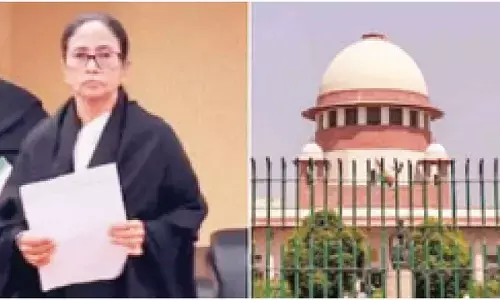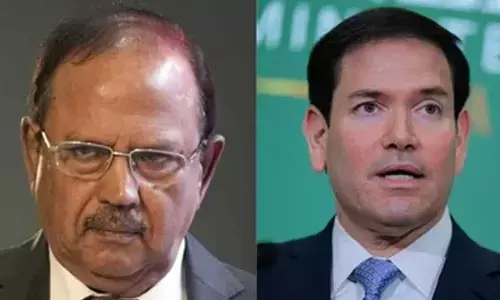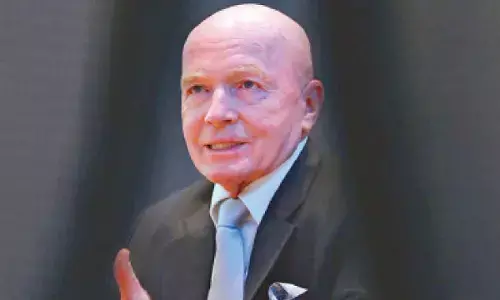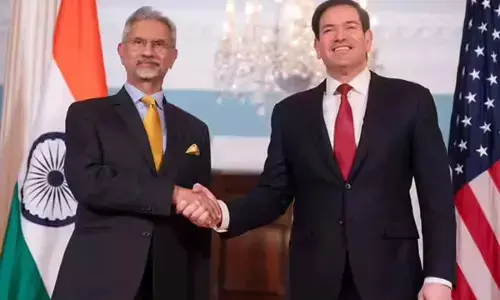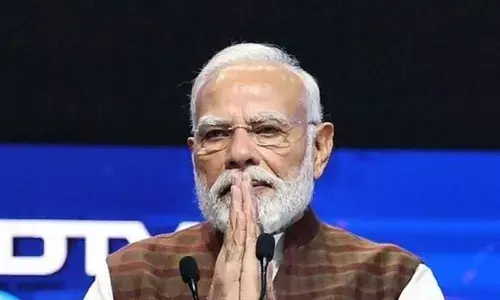MyVoice: Views of our readers 23rd January 2022

MyVoice: Views of our readers 15th February 2022
Goa elections an acid test for BJP politics
One more 'son is rising' in Indian politics; this time from the seaside state, Goa. Utpal Parrikar, son of late Manohar Parrikar, former Union Defence Minister and four time Chief Minister of Goa, chosen to enter into electoral fray by contesting Assembly polls as Independent candidate from Panjim constituency, represented by his father for over 25 years. He refused to contest from other Constituency offered by his party, BJP. The dramatic decision of 40- year-old Parrikar, turning the table to his advantage, is now creating ripples in the state BJP circles.
It is pertinent to know the developments of the post poll scenario of last Goa Assembly elections held in March 2017. Out of the 40 Assembly seats, Congress became the largest winning party and BJP was distant second. Without giving an opportunity to Congress having 17 seats, BJP with its 13 seats was quick to claim the power then, by wooing 3 Maharashtra Gomantak Party(MGP) and 3 Goa Forward Party members, also 3 independents. At the instance of MGP leaders, Manohar Parrikar was again made Chief Minister in March 2017, recalling him from New Delhi. Unfortunately, his untimely demise in March 2019, put the BJP govt in quandary again. Since then the saffron party leadership retained power in the state by wooing non BJP legislators into its fold, including some Congress members.
Atanasio 'Babush' Monserrate won the byelection on Congress ticket from Panjim, the seat which fell vacant due to the death of Parrikar. Interestingly Babush is an arch rival of late Chief Minister for decades, was conveniently admitted into ruling BJP later on. In the absence of regional leader of late Parrikar's stature, the party poached several prominent local leaders of opposition parties, into its faction without bothering their antecedents or criminal records, thus turning the political waters of the state into further murkier. On this very point now Utpal, harping to 'safeguard the values' of his late father, a promise to Panjim voters, is contesting as an independent candidate.
Devendra Fadnavis, former Maharashtra Chief Minister and state election in charge of the party ridiculed Utpal, stating that being a 'son' is not the sole criteria/qualification to claim a BJP ticket to contest poll. Speaking to the media persons other day, Utpal said, he will prefer to take up this very issue with Panjim voters to confirm his credentials of his candidature and also political future. The recent dramatic events of Goa not only a testing time to this young Utpal but may also decide the fate of the saffron party, which has now distributed party tickets to many turncoats and their spouses, much to the dismay of grass root workers.
Govardhan R Jilla, Mumbai
Politics or corporate warfare?
We never thought of politics as a profession. And if a profession, perhaps much like the oldest profession in the world. With the election season on us, the politicians seem to think of themselves as corporate executives, looking to better their prospects. And typically, every election season, the politicians leave their current parties and gravitate to a party which can potentially give them tickets.
In the corporate world, a person leaves a company for several reasons – a bad boss; bad work environment; lack of respect and regard for the work done; lack of promotional opportunities; or simply a mind-blowing offer with a better role and better salary. This is quite true for politics also.
Let's take the examples of the movers and the shakers in the current political party hopping. A bunch of politicians from BJP have jumped ship to Samajwadi party.
Is it because SP is a great party? Not a chance. These people would have known that they would not get tickets and therefore, with a view to being re-elected moved to SP, where I am sure they would have been promised tickets.
But look at Ms. Aparna Yadav, the sister-in-law of Akhilesh. Why would she move to BJP? Possibly because her brother-in-law did not promise her a seat. When you look at who has gained and who has lost, possibly the value of one Aparna is equal to the number of others. In this game, at this moment, the wins and losses are equal for both the parties.
C K Subramaniam, Chennai
Snuffing out Amar Jawan Jyoti is reversal of history
This has proved to be a government of statues and statutes- erecting new statues and creating new statutes with no worthwhile or demonstrable gains. Earlier it was the statue of Sardar Patel in Gujarat erected at a monumental cost amidst great fanfare. It is yet to become a tourist cynosure as was promised with poor turnout of visitors.
Now it is the statue of Netaji Subashchandra Bose proposed to be erected in granite at India Gate. For the time being a hologram statue will be unveiled by the PM. The government wants to project that these great heroes were forgotten and now it is reclaiming history. It is not correct. Sardar and Netaji have etched a permanently unique place in the hearts of Indians.
Another event that brought tears to many an eye is the snuffing of Amar Jawan Jyoti in the name of merging it with National war memorial flame. Why can't both exist? The eternal flame is a tribute to the soldiers who laid down their lives in 1971 war, which is about the only war India won comprehensively. It evoked feelings of patriotism, sacrifices and victory. Alas! it is no more. Eradication of history doesn't create any new history. The present government is bent upon removing or reversing the things of previous governments. Right from Planning Commission many things have been renamed and revamped but with not much gains. Changing the names or erecting gigantic statues will not change the course of the nation. Such acts of reversal are only creating heartburn and distress among public who at the moment are on a mute mode.
Vinay Bhushan Bhagwaty,Hyderabad
II
After asserting that the eternal flame established to mark India's victory over Pakistan in 1971 that was inaugurated by late PM Indira Gandhi on Republic Day 1972 will remain as it is, the present government for reasons well known has opted to extinguish the flames at Amar Jawan Jyoti in the name of merging two eternal flames. Instead of giving vague reasons, the government could have been more transparent that it is one of the many cost cutting measures and also to give more attention to Prime Minister Modi who has inaugurated the National War Memorial.
Politically of course, it is probably beginning to extinguish the name Indira Gandhi from Indian history as the process of extinguishing the name of Jawaharlal Nehru from Indian history is almost complete now. With the merging of eternal flame, the memorial under India Gate canopy would remain Amar Jawan Jyothi or simply "Amar Jawan" who are often forgotten once the political war is over.
Now that the flame from Amar Jawan Jyoti has been extinguished and merged, when would the flames of religious hate, communal hatred, caste divide which has been lit way back after 1947 continuing to spread in the length and breadth of India be extinguished forever?
N Nagarajan, Hyderabad








